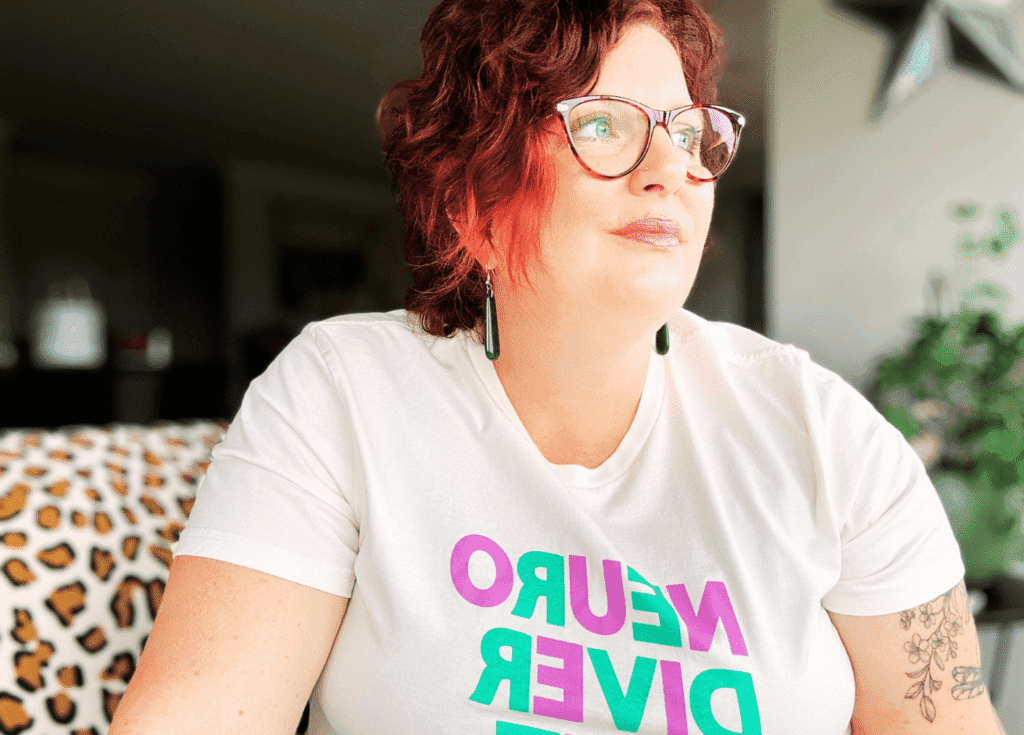It’s been a bittersweet week for me.
My daughter, the one who started our family’s burnout journey, just finished her first year of university.
And you know what the very first thought was that crossed my mind?
“I’d better not tell anyone… what if it all goes wrong?”
Something tells me you might understand this if you are reading this.
The vulnerability of joy and hope, and that quiet, sinking feeling of waiting for the other shoe to drop.
And honestly, my feelings make sense.
All through her teenage years, she was the quiet one.
The child who just got on with it.
The one I thought was “fine.”
Until suddenly, she wasn’t.
Until the day when those words, “She seems to be doing so much better…” had barely left my lips before we were fighting to keep her alive.
So this milestone sits uneasily in my body.
And yet, in the same breath, I’m so proud of her.
Because I know what she had to overcome to get here.
A tug-of-war between fear and hope… between wanting to celebrate and wanting to stay safe has waged a war in me, and I am…
Well, you know…
This has reminded me of a poem I wrote during her first recovery, when she told us she wanted to go back to school:
Trust is built in the doing.
Little wonders woven from the textiles of our human interactions,
in the smallest of gestures —
trust offered, and trust returned.To build trust, we must sit with the vulnerability of loss.
To know that not every gift of trust will be reciprocated —
and still, we offer it anyway.For when trust is broken, the temptation is to guard our hearts,
to lock them away.
But the price of withholding trust is far too high.Because without those regular, sustaining deposits of trust —
our hope, our faith, our love, and our humanity
begin to fade too.
I think this is what recovery, for our kids and for us, really asks of us.
To risk hope again.
To practice trust, not because it’s safe, but because it’s how we stay alive to the possibility of healing.
Learning to Listen to My Inner Voice
I am forever grateful to my younger self for doing the personal growth work before my child went into burnout.
For showing up, even when it wasn’t perfect.
For setting up morning rituals, sometimes faithfully, sometimes messily, that helped me come back to myself again and again.
In some ways, I was unmasking before I even knew that I was unmasking, and my realisation as a late diagnosed AuDHD dropped like a seed into already prepared ground.

Over the years, those small practices became anchors.
Recognising my thoughts.
Understanding my patterns and the patterns of those around me.
Taking time, even a few quiet minutes, to steady my nervous system before the day began.
It was by no means easy; it never is, but that foundation sustained me.
It protected my spirit, kept me from slipping into burnout myself, and allowed me to hold space for others walking through the same fire.
Neurodivergent Parenting and Trust
When we are in crisis, many of us rush to fix, to remove the pain and suffering from this moment, because the alternative feels too unbearable to endure.
For me, and for many of the parents I walk beside on this journey, the role of fixer becomes a kind of lifeline. The mantle of the overfunctioner shields us from the rawness of vulnerability, giving us the fortification we think we need for the task ahead.
This armour has a purpose.
It holds us upright when everything else is falling apart.
It protects us from the judgments, misunderstandings, and chaos swirling around us.
And in those moments, the strength it offers is functional, practical, often absolutely necessary, because there are others who depend on us to keep going.
But this armour is heavy.
Over time, it adds to our exhaustion, our weariness.
And if we’re not careful, it becomes a prison of our own making — convincing us that we are alone in our suffering.
Armoured up, we stay frozen in time, unable to process what has happened or to be truly present in what is. We begin to mistake the armour for safety, believing that vigilance equals protection.
But true safety lives in connection, and it’s impossible to be on guard and open-hearted at the same time.
The Sacred Relief of Surrender
Connection asks us to lay down our armour, to meet another human being in the present moment with soft eyes and an unguarded heart.
And yet, for so many of us on the parenting journey, life demands that we be both protected and open, strong and tender.
Sometimes, there is no way to hold both without something breaking.
And maybe the breaking isn’t the failure. Maybe it’s just what happens when a human heart carries too much for too long.
It’s only when we can surrender this heavy load to something greater than ourselves, or into the steady hands of others who have walked a similar path, that we taste the brief, sacred relief of being unguarded in community.
And maybe that momentary exhale,
that shared softening,
is what makes the impossible just a little more bearable.

But trust is hard to offer when you’ve known rejection, judgment, heartbreak, and the sting of handing your tender heart to others, only to have it broken again and again.
In those moments, the kind of surrender so often spoken about can feel almost life-threatening,
cementing the armour in place,
hardening what was once soft.
Rebuilding Faith in Something Bigger
And yet, I still believe we can’t make it through this, parenting a child in burnout, walking through the dismantling of everything we thought we knew, without nurturing a relationship with something bigger than ourselves.
This doesn’t mean we have to be happy all the time, or in acceptance, or even in love with that force, the divine, spirit, nature, life, whatever we call it.
We don’t have to be polite with it.
We’re allowed to be angry.
We’re allowed to argue, to question, to doubt.
The most important thing is that we stay in dialogue, that we open to this living current within and around us.
Because the more we speak with this voice inside, the more we listen to it, the stronger it becomes.
And with that strength comes clarity, resilience, and a kind of quiet knowing.
To me, this is what sovereignty really means:
learning to trust ourselves,
to reclaim the wisdom we once handed over to others,
and to remember that our guidance doesn’t come from the outside.
It lives within us.

We live in a world overflowing with knowledge,
but starving for wisdom.
Wisdom is born in the space where knowledge meets lived experience, and that space is in dangerously short supply.
One of the most frustrating things about wisdom is that, as Liz Gilbert reminds us, we do not get access to tomorrow’s wisdom today.
The Slow Work of Trust
Trust is built in the doing, not the knowing.
When I was the mum of an infant, I didn’t mind the sleepless nights.
The soft singing into the dark, the gentle rocking, the endless feeds.
Those moments were sacred in their own way, exhaustion wrapped in tenderness.
Even then, I could feel something growing in the stillness between us:
trust.
I felt it again years later, sitting beside my daughter in hospital, finding new ways to meet her needs, half asleep on an uncomfortable chair, watching over her as she slept.
We often talk about the overwhelm, the exhaustion, how consuming this experience is, and it is all of those things.
But it’s also an invitation.
When everything is stripped away, when we are taken again and again to our edge, we rediscover who each of us truly is.
Parent and child.
Human to human.
Soul to soul.
We don’t build it by sitting on the sidelines or waiting until we feel ready.
We build it in the mess, in the middle of the night, in the quiet exhale when we surrender the weight for just a moment and let ourselves be held by life, by love, by one another.
If this spoke to your heart, you’re not alone.
Join The Connected Parent Blog community and receive future reflections, stories, and gentle reminders of hope in your inbox.
The Person Who Wrote This Blog
Hi, I’m Tanya Valentin, an AuDHD parent, family coach, author, and podcaster. I guide parents of Autistic and ADHD kids through burnout recovery using a neuro-affirming, trauma-informed approach.
As a parent of three autistic teens, I know firsthand how isolating and exhausting this journey can be. If this spoke to something inside you, you’re not alone. You can find more reflections and gentle community-based support inside From Burnout to Balance.


1 Comment on Rebuilding Trust and Neurodivergent Parenting